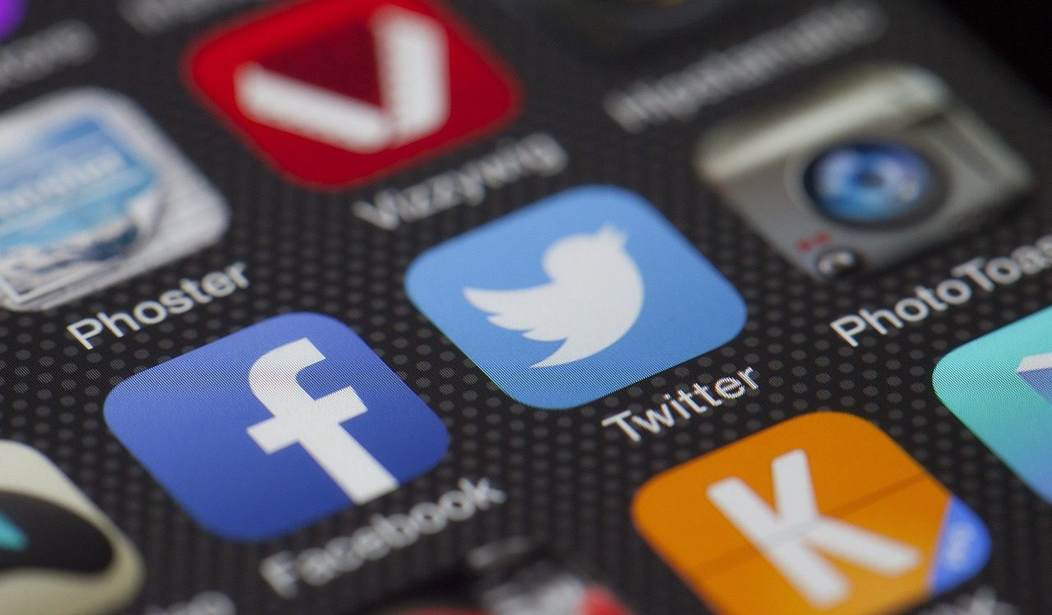Gun control groups have been filing lawsuits against gun makers and sellers for decades, trying to hold them responsible for the third party acts of criminals. While the Protection of Lawful Commerce in Arms Act was meant to put a halt to those junk lawsuits, Everytown and other outfits have tried to do an end run around the PLCAA by using public nuisance statutes, liability laws, or claiming that the lawful actions of these companies are the proximate cause of criminal acts.
Increasingly, though, it's not just the firearms industry that's targeted by groups like Everytown, Giffords, and Brady. Social media companies are also getting sued; accused of fueling the flames of hatred, bigotry, and murderous rage that have motivated some mass killers in recent years. As The Verge reports, earlier this month anti-gun groups squared off against the likes of Meta and Amazon in a New York courtroom, with the gun control activists arguing that Big Tech is responsible for radicalizing the individual responsible for the shooting at a Buffalo grocery store in 2022 that resulted in ten people being murdered.
Everytown for Gun Safety brought two lawsuits over the shooting in 2023, filing claims against gun sellers, Gendron’s parents, and a long list of web platforms. Victims of the shooting brought two additional lawsuits against social media companies whose platforms Gendron had used. The accusations against different companies vary, but all place some responsibility for Gendron’s radicalization at the heart of the dispute. The platforms are relying on Section 230 of the Communications Decency Act to defend themselves against a somewhat complicated argument. In the US, posting white supremacist content is typically protected by the First Amendment. But these lawsuits argue that if a platform feeds it nonstop to users in an attempt to keep them hooked, it becomes a sign of a defective product — and, by extension, breaks product liability laws if that leads to harm.
That strategy requires arguing that companies are shaping user content in ways that shouldn’t receive protection under Section 230, which prevents interactive computer services from being held liable for what users post, and that their services are products that fit under the liability law. “This is not a lawsuit against publishers,” John Elmore, an attorney for the plaintiffs in one of the suits, told the judges. “Publishers copyright their material. Companies that manufacture products patent their materials, and every single one of these defendants has a patent.” These patented products, Elmore continued, are “dangerous and unsafe” and are therefore “defective” under New York’s product liability law, which lets consumers seek compensation for injuries.
I've said before that my feelings towards social media are roughly the same as Shannon Watts' feelings about AR-15s, but as harmful as I believe social media is, I'm not convinced by the argument that these companies are essentially addicting users to extremist points of view.
Some of the tech defendants — including Discord and 4chan — don’t have proprietary recommendation algorithms tailored to individual users, but the claims against them allege that their designs still aim to hook users in a way that predictably encouraged harm.
“This community was traumatized by a juvenile white supremacist who was fueled with hate — radicalized by social media platforms on the internet,” Elmore said. “He obtained his hatred for people who he never met, people who never did anything to his family or anything against him, based upon algorithm-driven videos, writings, and groups that he associated with and was introduced to on these platforms that we’re suing.”
These platforms, Elmore continued, own “patented products” that “forced” Gendron to commit a mass shooting.
No company "forced" the mass murderer to commit his crime. If that were true, then given the ubiquitous nature of social media these attacks would be happening multiple times a day. Instead, as criminologist James Alan Fox pointed out earlier this month, the number of mass public shootings has declined dramatically this year. Moreover, these events are so rare that, while an increase of one or two can result a dramatic upswing percentage-wise, the numbers have broadly stayed the same over the past 15 years; from a low of 19 such incidents in 2012 and 2014 to a high of 39 in 2023.
As Fox says:
They have not skyrocketed over the past couple of decades, especially considering the growth in population.
Leading outlets have referred to a mass-shooting “epidemic,” particularly when covering the kind of massacres that rock the nation. These events cause widespread terror, after all, they can happen to anyone, at any time, at any place — without warning.
The percentage of Americans indicating that they are fearful of mass shootings nearly tripled from 16 percent in 2015 to 46 percent in 2024, according to Chapman University. And as many as one-third of respondents in a 2019 survey commissioned by the American Psychological Association admitted to having avoided certain places or events out of concern for a shooting.
The truth is these events are exceedingly rare. Moreover, nearly half of all mass shootings take place in private dwellings, and about one-quarter involve gang conflict, drug trafficking or other criminal enterprises.
Which means the public mass shootings motivated by political ideology or animosity towards a particular group are even more uncommon. That, in turn, completely undercuts the claims of the anti-gunners that the firearms industry's marketing practices or social media algorithms are turning peaceful people into mass murders.
I still don't like social media, which is why you'll rarely find me on platforms like Twitter, Facebook, or Instagram. I believe the constant glut of information cripples our ability to think critically and deeply about issues, and the dopamine rush we get from engaging in online verbal jousting is more compelling than the ability to find common ground and connections with other social media users who live lives far different than our own. In 2009 journalist Maggie Jackson wrote Distracted: The Erosion of Attention and the Coming Dark Age, which has proved to be pretty prescient over the past 15 years (I recommend that as well as Jaron Lanier's You Are Not a Gadget for anyone else concerned about the impact of social media on our individual and collective psyches).
But while social media may provide a platform for all kinds of thought, including positions the vast majority of us find abhorrent, it's not responsible for the actions of individuals. The responsibility for the mass murder at Tops Grocery in Buffalo lies with the twisted individual who pulled the trigger; not the maker of the gun he used or the tech companies who run the platforms where he spent so much of his time.










